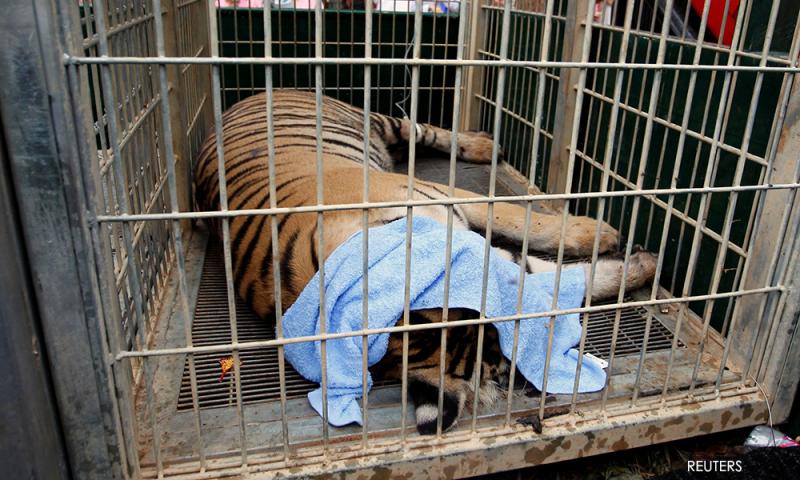Thai 'Tiger Temple' blames gov't for deaths of rescued tigers
Thailand's much-criticised Tiger Temple tourist attraction on Monday blamed the government for the deaths of scores of its tigers seized by authorities in 2016, denying official accounts that the big cats died from inbreeding and disease.
The Buddhist temple west of Bangkok was once a tourist hotspot where visitors took photos with tigers and bottle-fed cubs until international pressure over wildlife trafficking prompted authorities to confiscate 147 tigers in 2016.
Since then, however, 86 of the animals living in two state-run wildlife sanctuaries have died due to immune deficiencies from inbreeding, which made the animals vulnerable to deadly diseases, state wildlife authorities said.
The temple's caretaker denied this on Monday. "They did not die because of inbreeding," Athithat Srimanee told Reuters.
"When they raided the temple three years ago, they did not say anything about infection, so this is just a blame game," he said, accusing the authorities of locking up the animals in small cages.
"At the temple, despite our lack of academic knowledge, we used kindness so the tigers lived in wide spaces and not in cages."
Despite the 2016 raid and allegations that it had links with wildlife trafficking, the temple - officially named Wat Pa Luang Ta Bua - remains a tourist attraction as a private wildlife sanctuary that allows people to feed animals for free. It has denied any connection with animal trafficking.
Currently, there are 400 deers, more than 300 peacocks, a lion and several other animals under its care legally.
Thai authorities maintained on Monday that the tigers were well taken care of at government sanctuaries and that they caught diseases like canine distemper virus or laryngeal paralysis because inbreeding had destroyed their immune system.
"There were six tigers (originally at the temple) and later that became 147 or even more, so there were always the risks and also we found that their health was not good, to begin with," Pattarapol Maneeorn, a wildlife veterinarian for the Department of National Parks, Wildlife and Plant Conservation said Monday.
"Their genetics have made their body weak and susceptible to the risk of infection," he told a news conference.
- Reuters
RM12.50 / month
- Unlimited access to award-winning journalism
- Comment and share your opinions on all our articles
- Gift interesting stories to your friends
- Tax deductable

 Reuters
Reuters